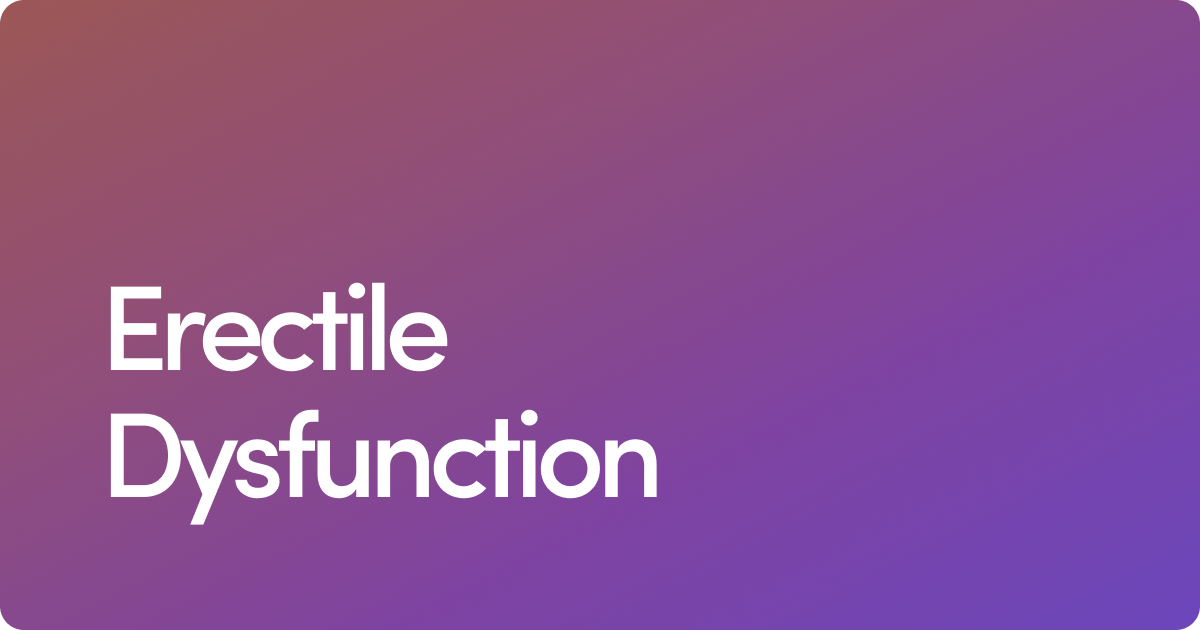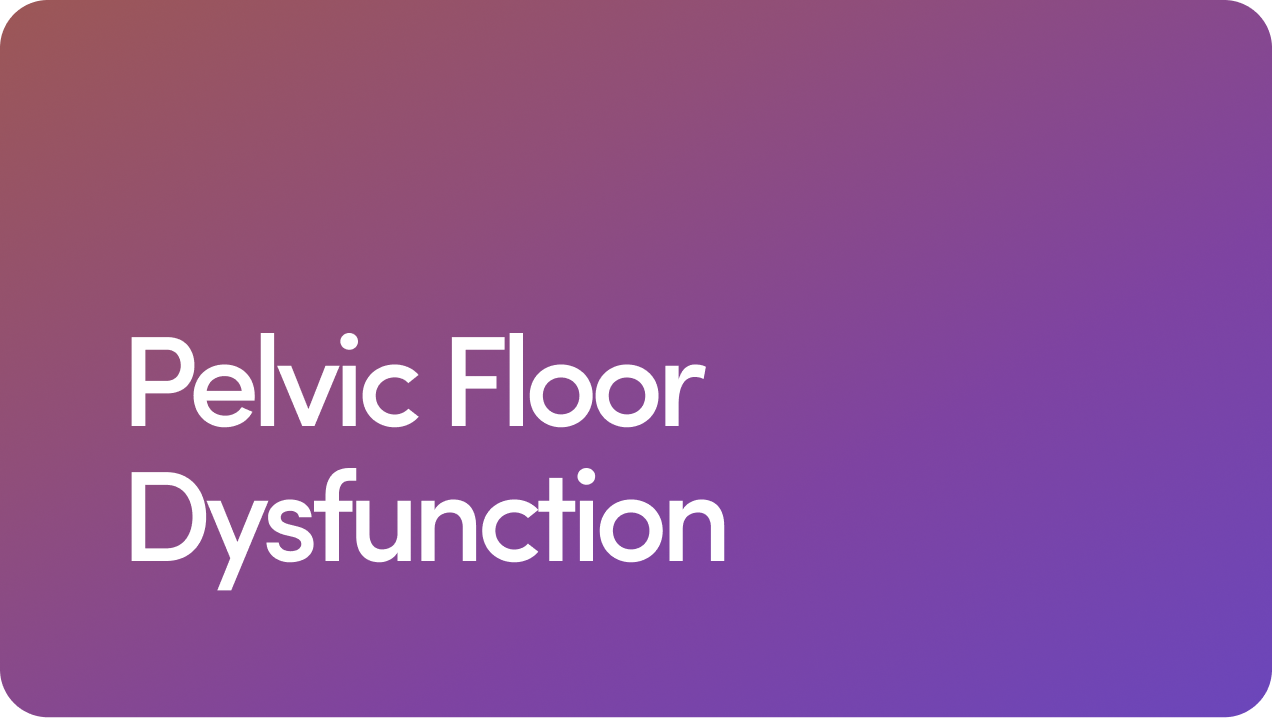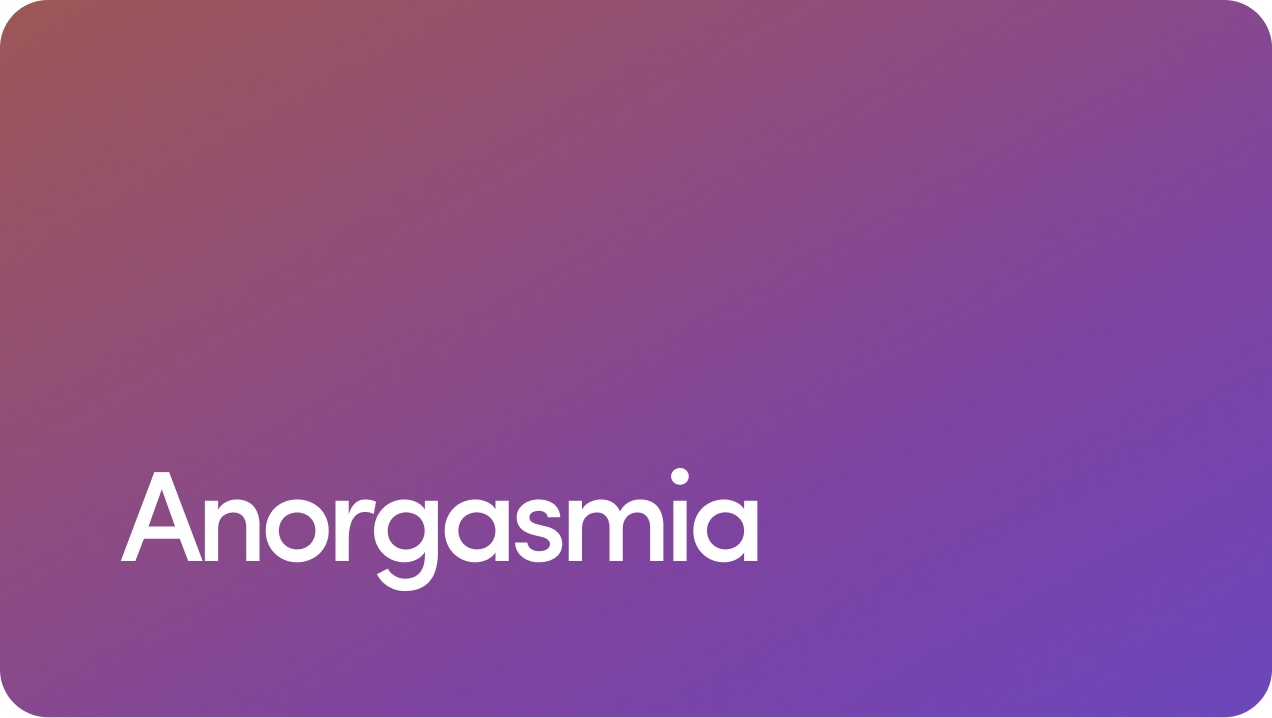Content
Enjoy sex like you used to
Caffeine and Erectile Dysfunction (ED): Can It Help?

Caffeine has a complicated reputation. Ask around, and you’ll get different answers about whether it’s good or bad for you.
Ultimately, though, there’s some solid evidence that antioxidant-rich coffee has health benefits — as long as you don’t go overboard.
If you’re dealing with erectile dysfunction (ED), you might be wondering whether your AM java habit is negatively impacting your sexual health. Or…. could it *gasp* be improving it?
PDE-5 inhibitors like ViagraⓇ and CialisⓇ probably come to mind when you think of treatment for ED. These meds work by increasing blood flow to your penis, and are safe and effective treatments.
But researchers have also looked at natural alternatives for treating ED, like caffeine.
The research on caffeine and erectile dysfunction isn’t clear-cut. While drinking coffee isn’t a treatment for ED, it might help boost your overall health, making you less likely to develop erectile problems.
Below, we dig into the link between caffeine and ED, including whether that morning cuppa is an effective treatment for ED (spoiler alert: it’s not!), caffeine side effects and research-backed ED treatments.
Content
The Link Between Caffeine and ED
Let’s talk caffeine and erections. First off, is coffee good or bad for you? What’s the deal?
The good: Some evidence links drinking several cups of coffee and tea daily to a lower risk of stroke and dementia.
The bad: Too much caffeine — more than five cups per day — may have adverse health effects, according to the Food and Drug Administration (FDA).
Okay, so coffee is both good and bad for you generally, but is it good for erectile dysfunction?
Coffee and other substances containing caffeine might help with ED, but overall the evidence is mixed.
Moderate amounts of caffeine seem to lessen the risk of ED, according to some studies.
One survey-based study from 2015 published in the journal PLOS One analyzed National Health and Nutrition Examination Survey data from 3,724 American men. The study authors noted a link between caffeine intake and a lower risk of ED in all participants except those with diabetes.
But how much caffeine are we talking about? An intake equivalent to about two to three cups of coffee per day was associated with a reduction in the prevalence of ED.
But while it’s possible that caffeine might be associated with decreased ED, it’s important to note that correlation does not equal causation
Bottom line: the jury’s still out.
If you’re interested in learning more about the link between sexual dysfunction and coffee, check out our blog on the benefits of coffee sexually.
No. Caffeine alone isn’t a solid solution for ED, at least according to the currently available evidence. You can’t caffeinate your way into an erection.
While a few cups of morning joe can be a part of a healthy routine, it’s not a magic pill for ED or a replacement for conventional ED medications like sildenafil (generic Viagra) and tadalafil (generic Cialis).
That said, if you have ED, there’s nothing to suggest it’s time to give up your coffee-drinking habit.
Quick note, though: Energy drinks and other sugary drinks containing caffeine probably aren’t the best choice, since they often contain ultra-high levels of caffeine or sugar.
Conversely though, one 2014 study found a link between increased caffeine and sugar intake and lower incidence of erectile dysfunction. This may point to a possible protective effect from caffeine, though the study authors don’t dig into the why behind these results.
Want to learn more about the effects of energy drinks on your sexual health? Check out our article on whether energy drinks cause erectile dysfunction.
Tea, coffee, lattes, espresso, chocolate-covered coffee beans and energy drinks — all tasty caffeine-filled options.
Caffeine isn’t for everyone, though.
For some, too much caffeine can leave them feeling jittery and unsettled. Others might get an upset stomach. And let’s not even mention the bathroom-related side effects of just a cup of coffee in the morning.
What about caffeine and erectile dysfunction? Can your aromatic brew negatively affect your ability to get and maintain an erection? Does caffeine cause ED in some cases?
Here are a few of the ED-related side effects possible with caffeine consumption:
Increased blood pressure. Things that go together: coffee and chocolate, peanut butter and jelly. Things that don’t? High blood pressure and erections. Drinking coffee can make you temporarily hypertensive, which can negatively impact your erection.
Sleep troubles. It’s a good idea to avoid coffee and other caffeinated beverages after 3 p.m. That’s because caffeine can seriously mess with your sleep, causing insomnia and poor sleep quality. And we can bet you won’t be raring to go if you’re running on fumes.
Stomach troubles. The effects of caffeine can make you go in more ways than one. Not exactly the ideal starter for a romantic encounter.
Withdrawal can cause headaches. Your body can become dependent on caffeine, which means that regular coffee drinkers might experience (unsexy) headaches if they skip their usual cuppa.
Alternatives to Caffeine for ED
Real talk. You don’t have to give up caffeine if you have ED, but since coffee and tea don’t cut it as treatments for erection issues, it’s time to dig into some proven ED treatments.
If you’re having problems getting or keeping an erection, a healthcare professional might recommend the following meds:
Sildenafil (generic for Viagra)
Tadalafil (generic for Cialis)
Stendra® (avanafil)
Hard mints chewable ED meds
If your causes of ED are more psychological, than physical though, you may need a different treatment.
Stress, sexual performance anxiety and trauma can all mess with your ability to fully enjoy sex. If emotional issues like anxiety or depression are interfering with your sex life, it might be a good idea to talk to a professional about how you’re feeling, whether online or in person. In some cases, a combo of meds and behavioral treatments will be most effective.
Addressing the root cause of ED — like mental health issues — can help put you on the path to a healthier, less stress-inducing sex life.
And speaking of root causes, adopting general healthy habits — drinking tea and coffee included! —can also help boost your sexual function and prevent erectile issues. Here are a few lifestyle factors to consider:
Regular exercise. Medical conditions like high blood pressure and heart disease can impact vascular health, damaging the blood vessels in your penis and putting you at higher risk for ED. Physical activity can help lower your risk of cardiovascular disease.
Dietary changes. A healthy, nutrient-dense diet can help you avoid all sorts of nasty health issues like heart disease and diabetes. Also key? Limiting alcohol consumption and quitting smoking, both risk factors for ED.
Meditation or yoga. If evil went by another name, it would probably be stress. Because if you think about it, stress is kind of the root of all evil — emotional and physical. Finding healthy ways to cope with daily stressors has many benefits. And less stress equals an easier time getting and keeping erections.
Caffeine and ED: The Bottom Line
Here’s the thing: caffeine isn’t an approved treatment for ED. While there’s no harm in continuing to drink tea and coffee as you usually would, it’s not going to have much of an impact on ED symptoms.
Let’s recap:
TRUE, combining caffeine intake with other healthy habits might help improve your overall health and, in turn, your erectile function.
BUT coffee isn’t a substitute for conventional medication treatments for ED.
AND, caffeine intake might even mess with your ability to enjoy sex, giving you the rumblies, impacting your sleep and increasing your blood pressure.
SO, if you’re looking for a way to solve your sexual performance issues, your best bet is to get medical advice from a qualified healthcare professional.
How can you treat ED symptoms effectively? Erectile dysfunction medications like Viagra and Cialis are FDA-approved to help with erection troubles.
If you’re ready to say hello to a better sex life, our healthcare professionals and online therapy platform can help.
10 Sources
- Lopez, D. S., Wang, R., Tsilidis, K. K., Zhu, H., Daniel, C. R., Sinha, A., & Canfield, S. (2015). Role of Caffeine Intake on Erectile Dysfunction in US Men: Results from NHANES 2001-2004. PloS one, 10(4), e0123547. Retrieved from https://www.ncbi.nlm.nih.gov/pmc/articles/PMC4412629/
- Zhang, Y., et al. (2021). Consumption of coffee and tea and risk of developing stroke, dementia, and poststroke dementia: A cohort study in the UK Biobank. PloS Medicine. Retrieved from https://journals.plos.org/plosmedicine/article?id=10.1371/journal.pmed.1003830
- Lopez, D. S., et al. (2018). Coffee intake and incidence of erectile dysfunction. Journal of Epidemiology, 187(5), 951-959. Retrieved from https://doi.org/10.1093/aje/kwx304
- Lopez, D. S., Wang, R., Tsilidis, K. K., Zhu, H., Daniel, C. R., Sinha, A., & Canfield, S. (2015). Role of Caffeine Intake on Erectile Dysfunction in US Men: Results from NHANES 2001-2004. PloS one, 10(4), e0123547. Retrieved from https://www.ncbi.nlm.nih.gov/pmc/articles/PMC4412629/
- Spilling the beans: How much caffeine is too much? (2023, September 7). Retrieved from https://www.fda.gov/consumers/consumer-updates/spilling-beans-how-much-caffeine-too-much
- Lopez, D.S., et al. (2014). MP32-06 Role of Caffeine and Sugar Consumption on Erectile Dysfunction in US Men. Journal of Urology, 191(4S), e332-e333. Retrieved from https://doi.org/10.1016/j.juro.2014.02.936
- Cappelletti, S., Piacentino, D., Sani, G., & Aromatario, M. (2015). Caffeine: cognitive and physical performance enhancer or psychoactive drug?. Current neuropharmacology, 13(1), 71–88. Retrieved from https://www.ncbi.nlm.nih.gov/pmc/articles/PMC4462044/
- Caffeine. (2021, September 8). Retrieved from https://medlineplus.gov/caffeine.html
- Treatment for erectile dysfunction. (2017, July). Retrieved from https://www.niddk.nih.gov/health-information/urologic-diseases/erectile-dysfunction/treatment
- Symptoms & causes of erectile dysfunction. (2017, July). Retrieved from https://www.niddk.nih.gov/health-information/urologic-diseases/erectile-dysfunction/symptoms-causes
Editorial Standards
Hims & Hers has strict sourcing guidelines to ensure our content is accurate and current. We rely on peer-reviewed studies, academic research institutions, and medical associations. We strive to use primary sources and refrain from using tertiary references. See a mistake? Let us know at [email protected]!
This article is for informational purposes only and does not constitute medical advice. The information contained herein is not a substitute for and should never be relied upon for professional medical advice. Always talk to your doctor about the risks and benefits of any treatment. Learn more about our editorial standards here.

Kelly Brown MD, MBA
Dr. Kelly Brown is a board certified Urologist and fellowship trained in Andrology. She is an accomplished men’s health expert with a robust background in healthcare innovation, clinical medicine, and academic research. Dr. Brown was previously Medical Director of a male fertility startup where she lead strategy and design of their digital health platform, an innovative education and telehealth model for delivering expert male fertility care.
She completed her undergraduate studies at University of North Carolina at Chapel Hill (go Heels!) with a Bachelor of Science in Radiologic Science and a Minor in Chemistry. She took a position at University of California Los Angeles as a radiologic technologist in the department of Interventional Cardiology, further solidifying her passion for medicine. She also pursued the unique opportunity to lead departmental design and operational development at the Ronald Reagan UCLA Medical Center, sparking her passion for the business of healthcare.
Dr. Brown then went on to obtain her doctorate in medicine from the prestigious Northwestern University - Feinberg School of Medicine and Masters in Business Administration from Northwestern University - Kellogg School of Management, with a concentration in Healthcare Management. During her surgical residency in Urology at University of California San Francisco, she utilized her research year to focus on innovations in telemedicine and then served as chief resident with significant contributions to clinical quality improvement. Dr. Brown then completed her Andrology Fellowship at Medical College of Wisconsin, furthering her expertise in male fertility, microsurgery, and sexual function.
Her dedication to caring for patients with compassion, understanding, as well as a unique ability to make guys instantly comfortable discussing anything from sex to sperm makes her a renowned clinician. In addition, her passion for innovation in healthcare combined with her business acumen makes her a formidable leader in the field of men’s health.
Dr. Brown is an avid adventurer; summiting Mount Kilimanjaro in Tanzania (twice!) and hiking the incredible Torres del Paine Trek in Patagonia, Chile. She deeply appreciates new challenges and diverse cultures on her travels. She lives in Denver with her husband, two children, and beloved Bernese Mountain Dog. You can find Dr. Brown on LinkedIn for more information.
Education & Training
Andrology Fellowship, Medical College of Wisconsin
Urology Residency, University of California San Francisco
M.D. Northwestern University Feinberg School of MedicineB.S. in Radiologic Science, Chemistry Minor, University of North Carolina at Chapel Hill
Research
Published as Kelly Walker
Cowan, B, Walker, K., Rodgers, K., Agyemang, J. (2023). Hormonal Management Improves Semen Analysis Parameters in Men with Abnormal Concentration, Motility, and/or Morphology. Fertility and Sterility, Volume 118, Issue 5, e4. https://www.sciencedirect.com/journal/fertility-and-sterility/vol/120/issue/1/suppl/S
Walker, K., Gogoj, A., Honig, S., Sandlow, J. (2021). What’s New in Male Contraception? AUA Update Series, Volume 40. https://auau.auanet.org/content/update-series-2021-lesson-27-what%E2%80%99s-new-male-contraception
Walker, K., Shindel, A. (2019). AUA Erectile Dysfunction Guideline. AUA Update Series, Volume 38. https://auau.auanet.org/content/course-307
Walker, K., Ramstein, J., & Smith, J. (2019). Regret Regarding Fertility Preservation Decisions Among Male Cancer Patients. The Journal of Urology, 201(Supplement 4), e680-e681. https://www.auajournals.org/doi/10.1097/01.JU.0000556300.18991.8e
Walker, K., & Smith, J. (2019). Feasibility Study of Video Telehealth Clinic Visits in Urology. The Journal of Urology, 201(Supplement 4), e545-e545. https://www.auajournals.org/doi/10.1097/01.JU.0000556071.60611.37
Related Articles
Related Conditions
 Erectile Dysfunction
Erectile Dysfunction
 Premature Ejaculation
Premature Ejaculation
 Low Testosterone
Low Testosterone
 Retrograde Ejaculation
Retrograde Ejaculation
 Pelvic Floor Dysfunction
Pelvic Floor Dysfunction
 Anorgasmia
Anorgasmia